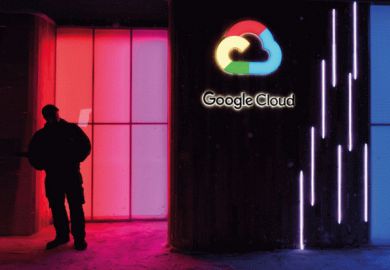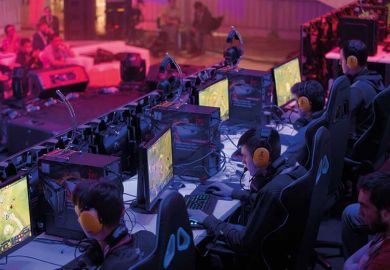US academic researchers lack the coordination necessary to help policymakers tackle the growing threat to society of disinformation in politics, a leading network of social scientists has warned.
With US voters facing the prospect of yet another presidential election deliberately confused and inflamed by lies and distortions spread online, experts in such topics are still struggling to respond, the Social Science Research Council has concluded.
“There hasn’t been a clear way to even figure out what we know or don’t know” about disinformation and possible solutions to it, the council’s president, Alondra Nelson, a professor of social science at the Institute for Advanced Study, said.
The SSRC is trying to help, announcing an initiative to provide a central repository listing all key research and findings relating to political disinformation, and offering regular summaries of them.
Fighting disinformation was a particularly difficult challenge, said the initiative’s coordinator, Jason Rhody, director of the SSRC’s media and democracy programme, because it involved efforts to deliberately deceive.
The immediate need, therefore, was “a broader understanding and a more nuanced understanding of what we’re actually grappling with”, Dr Rhody said.
The need also appears urgent. Russia is widely understood to have orchestrated a campaign through Facebook and other social media sites to sow dissent among Americans and to amplify backers of Donald Trump’s 2016 presidential campaign. Russia and other actors, both foreign and domestic, are now understood to be initiating even more sophisticated disruptions for the 2020 election cycle.
Facebook, in particular, has tried but largely failed to convince US lawmakers that it can handle its commitment to both allow free expression and block abuses of public trust. And the Trump administration appears divided on how seriously and aggressively to engage, partly because of the sense that it may have benefited from the practice.
As a result, the US finds itself trailing behind the European Union, “both in terms of conceptual framing and calls for concrete actions to meet the disinformation challenge”, the Atlantic Council, a policy thinktank, declared in a report this summer.
Academic researchers are a potentially potent ally for those social media companies and policymakers who are looking for solutions, Professor Nelson said, because they can take the time to carefully study questions from a variety of fields of expertise.
But they need help in finding partners, and in sorting through the rush of discoveries coming from investigators both inside and outside academia, including journalists and advocacy groups, Professor Nelson said.
The council’s information-sharing project will hopefully address that need, Professor Nelson said. Less clear, she acknowledged, was whether even a rigorous understanding of the mechanisms behind disinformation practices in social media will meaningfully change attitudes – such as a refusal to accept uncomfortable facts – that may be far more deeply embedded in US society.
Professor Nelson is deeply familiar with that question, having written a book on the Black Panther Party that describes how an organisation regarded by much of the US public as a terrorist entity was heavily involved in improving the public health conditions for the black residents of Oakland in the 1960s.
Her experience researching the Black Panthers reinforced the need to understand a question from all sides before trying to address it. “We think we know something,” she said, “and we don’t know what we think we know.”
POSTSCRIPT:
Print headline: Academics get help fighting fake news
Register to continue
Why register?
- Registration is free and only takes a moment
- Once registered, you can read 3 articles a month
- Sign up for our newsletter
Subscribe
Or subscribe for unlimited access to:
- Unlimited access to news, views, insights & reviews
- Digital editions
- Digital access to THE’s university and college rankings analysis
Already registered or a current subscriber?









